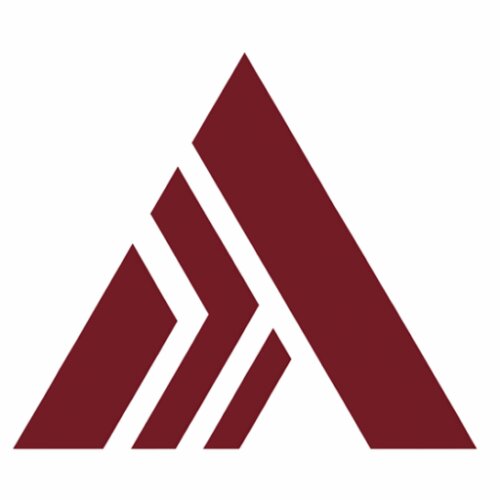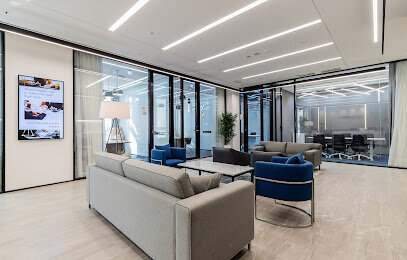Best ADR Mediation & Arbitration Lawyers in South Korea
Share your needs with us, get contacted by law firms.
Free. Takes 2 min.
Or refine your search by selecting a city:
List of the best lawyers in South Korea
About ADR Mediation & Arbitration Law in South Korea
Alternative Dispute Resolution (ADR), which primarily includes mediation and arbitration, is a significant part of the legal landscape in South Korea. ADR offers individuals and businesses a means to resolve disputes outside the traditional courtroom setting, often resulting in faster resolution and reduced costs. In South Korea, ADR is seen as a complement to the judicial process and has been increasingly utilized across various sectors, including commercial, employment, and intellectual property disputes. The South Korean legal system actively encourages the use of ADR to alleviate the burden on courts and promote amicable settlements.
Why You May Need a Lawyer
There are several situations where legal assistance might be necessary in the context of ADR Mediation & Arbitration in South Korea:
- Complex Disputes: Disputes involving multiple parties, large sums of money, or technical subject matter may require legal expertise to navigate effectively.
- Enforcement of Agreements: After a successful mediation or arbitration, parties may need legal assistance to ensure that any agreements reached are enforced, particularly across borders.
- Drafting and Negotiation: Lawyers can provide invaluable support in drafting arbitration clauses or negotiating settlement terms during mediation.
- Understanding ADR Procedures: Each ADR process has its own rules and procedures which can be complex and may necessitate legal interpretation to avoid pitfalls.
- Objective Advice: Lawyers provide an objective perspective which can be crucial for making informed decisions during highly contentious disputes.
Local Laws Overview
Key aspects of local laws relevant to ADR Mediation & Arbitration in South Korea include:
- Arbitration Act: This governs arbitration procedures in South Korea and is largely based on the UNCITRAL Model Law, ensuring that it aligns with international standards.
- International Arbitration: South Korea is a signatory to the New York Convention on the Recognition and Enforcement of Foreign Arbitral Awards, which facilitates the enforcement of international arbitration awards.
- Mediation Practices: Mediation is often informal, and while not as strictly regulated as arbitration, it is gaining traction as a preferred method for dispute resolution.
- Court-Annexed ADR: South Korean courts may refer cases to mediation as part of pre-trial procedures to encourage out-of-court settlements.
- Seoul International Dispute Resolution Centre (SIDRC): Acts as a forum for international arbitration and mediation, leveraging South Korea's strategic location in Asia.
Frequently Asked Questions
What is ADR?
ADR, or Alternative Dispute Resolution, refers to methods used to resolve disputes outside of traditional court proceedings, including mediation and arbitration.
How does mediation work in South Korea?
Mediation in South Korea involves a neutral third party who facilitates discussions between disputing parties to help them reach a mutually agreeable solution.
What is the difference between arbitration and mediation?
In arbitration, a neutral arbitrator makes a binding decision after considering all sides of the dispute, whereas mediation focuses on negotiation facilitated by a mediator to help parties reach a voluntary agreement.
Are arbitration awards binding in South Korea?
Yes, arbitration awards are binding on the parties and can be enforced like court judgments, provided they meet the necessary legal requirements.
Can foreign parties engage in ADR in South Korea?
Yes, foreign parties can participate in ADR processes in South Korea and often choose the country as a venue for international arbitration due to its supportive legal environment.
What are the costs associated with ADR?
Costs can vary widely depending on the complexity of the case, the arbitrator's or mediator's fees, and the length of the proceedings. ADR is generally less costly than litigation.
How long does an ADR process typically take?
The duration of ADR processes can vary. Mediation can be resolved in weeks or months, while arbitration might take several months to over a year, depending on the complexity.
Do I need a lawyer for ADR proceedings?
While not mandatory, having a lawyer can be advantageous, especially for complex cases, to ensure the process is conducted fairly and efficiently.
Can a mediation settlement be enforced legally?
Yes, mediation settlements can be legally binding if they are formalized in a settlement agreement. This agreement can be enforced in court if necessary.
What role do courts play in ADR?
Courts can mandate ADR in certain cases, assist in appointing arbitrators, enforce arbitration awards, and provide support for upholding agreements reached through mediation.
Additional Resources
If you are seeking further information or assistance regarding ADR Mediation & Arbitration in South Korea, consider reaching out to the following resources:
- Seoul International Dispute Resolution Centre (SIDRC): A leading institution providing facilities and administrative support for ADR in South Korea.
- Korean Commercial Arbitration Board (KCAB): Offers arbitration and mediation services and is instrumental in setting ADR standards.
- Ministry of Justice: Provides guidelines and regulations concerning ADR procedures.
- Local Bar Associations: Can assist in locating experienced ADR lawyers or mediators.
Next Steps
If you find yourself requiring legal assistance related to ADR Mediation & Arbitration in South Korea, consider taking the following steps:
- Assess Your Needs: Determine whether you are looking to resolve a dispute, enforce an agreement, or understand more about ADR processes.
- Consult a Lawyer: Seek consultation with a lawyer specialized in ADR to understand your legal options and obligations.
- Gather Documentation: Collect all relevant documents and evidence that pertain to your dispute or inquiry which will aid in the consultation process.
- Understand Costs and Timeframes: Discuss potential costs and timelines with your lawyer to set realistic expectations regarding the ADR process.
- Explore Available ADR Forums: Consider venues like the SIDRC or engage the KCAB where specialized mechanisms are available to handle your dispute effectively.
Lawzana helps you find the best lawyers and law firms in South Korea through a curated and pre-screened list of qualified legal professionals. Our platform offers rankings and detailed profiles of attorneys and law firms, allowing you to compare based on practice areas, including ADR Mediation & Arbitration , experience, and client feedback.
Each profile includes a description of the firm's areas of practice, client reviews, team members and partners, year of establishment, spoken languages, office locations, contact information, social media presence, and any published articles or resources. Most firms on our platform speak English and are experienced in both local and international legal matters.
Get a quote from top-rated law firms in South Korea — quickly, securely, and without unnecessary hassle.
Disclaimer:
The information provided on this page is for general informational purposes only and does not constitute legal advice. While we strive to ensure the accuracy and relevance of the content, legal information may change over time, and interpretations of the law can vary. You should always consult with a qualified legal professional for advice specific to your situation.
We disclaim all liability for actions taken or not taken based on the content of this page. If you believe any information is incorrect or outdated, please contact us, and we will review and update it where appropriate.
Browse adr mediation & arbitration law firms by city in South Korea
Refine your search by selecting a city.
















